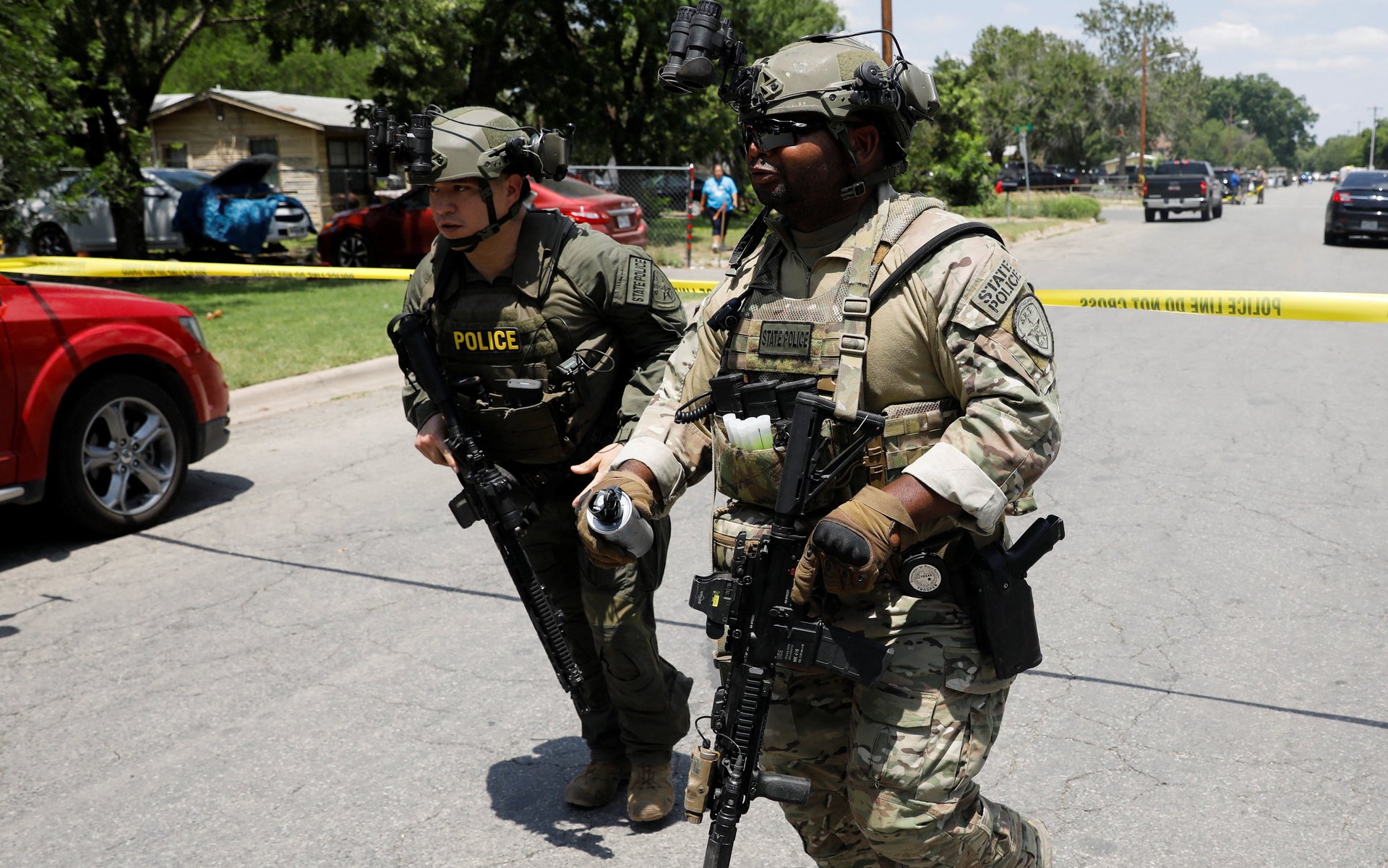Body armor is making mass shootings more deadly
The mass shootings that occurred this month in Uvalde, Texas and Buffalo, New York had several things in common. The shooters were both 18 years old, both used semi-automatic weapons, and both were wearing tactical gear.


The mass shootings that occurred this month in Uvalde, Texas and Buffalo, New York had several things in common. The shooters were both 18 years old, both used semi-automatic weapons, and both were wearing tactical gear.
Salvador Ramos, the attacker in Uvalde, muscled his way past a school police officer and into an elementary school wearing a “tactical vest carrier,” Texas police lieutenant Christopher Olivarez told reporters. On May 15, Payton S. Gendron killed 13 people at a Buffalo supermarket while wearing body armor, tactical gear, and a helmet. Ramos took 21 lives, 19 of them young children. Gendron, who targeted Black people and was shot at and hit by a retired police officer on the scene, killed 13. In a 180-page manifesto, he specifically cited procuring body armor to protect himself from armed security.
Military-style body armor is readily available in the US, and nonprofit The Violence Project has found that in the past decade it’s increasingly favored by perpetrators of mass shootings. While the debate on gun control is well trodden, dialogue around body armor is harder to find, and regulations are exceedingly scarce.
Details have yet to emerge on the exact gear worn by the Uvalde and Buffalo shooters, but all kinds of tactical equipment are easily available online. Bullet-proof vests typically consist of plate carriers made of steel, ceramic, or Kevlar, a kind of synthetic fiber—although bullet-proof is a bit of a misnomer. Brands and retailers warn that their products should be considered bullet-resistant and that any gear always carries a risk. In the US, protection is graded on a six-level scale, from being able to withstand stabbings to multiple ballistic hits.
Although New York is currently considering a bill that would prohibit owning a body vest, there are few restrictions like it elsewhere in the US. The state of Connecticut restricts face-to-face sales unless the buyer is active police or military, but again, kits are easy to find online. It’s also illegal under federal law to own body armor with a prior felony conviction, but since background checks are not required to buy tactical gear, that particular legislation is easily sidestepped.
Some of the more popular manufacturers of protective vests include Hesco and RMA, with styles starting at a few hundred dollars. High-end gear can run up into the thousands.